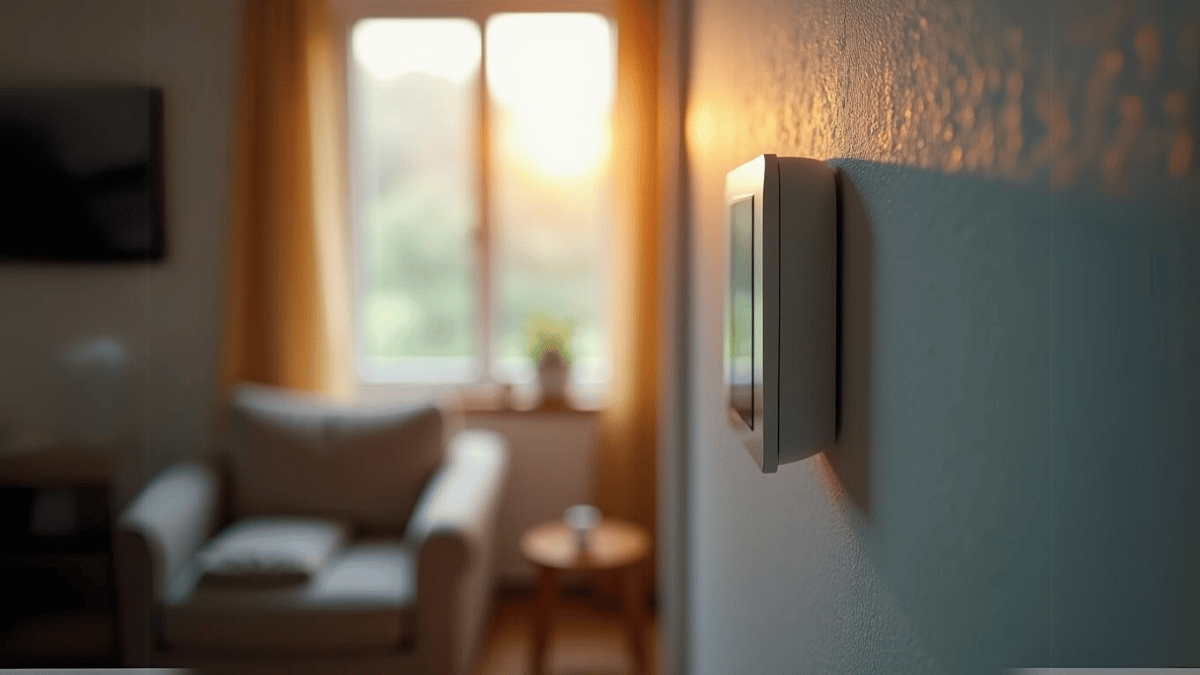Simple Changes for Big Savings: Easy Behavioural Changes for Significant Energy Savings
Energy-saving doesn’t always require major home renovations or expensive upgrades. Sometimes, small changes in your daily habits can lead to substantial savings on your energy bills. Let’s explore some simple behavioural changes that can make a big difference in your energy consumption and help you save money.
Heating and Cooling Habits

Your heating and cooling systems are often the biggest energy consumers in your home. By making a few adjustments, you can significantly reduce your energy usage.
Adjust Your Thermostat
One of the easiest ways to save energy is by adjusting your thermostat. Lowering your thermostat by just 1 °C can save you around 7% on your heating energy. This small change is barely noticeable but can lead to significant savings over time.
To make this even easier, consider using a programmable thermostat. You can automatically set it to lower temperatures at night when you’re away from home. This way, you’re not heating an empty house or using more energy than necessary while you sleep.
Optimise Your Boiler Settings
Your boiler’s settings can significantly impact your energy consumption. Lowering the hot water temperature can save you about 8% on heating energy. Most households don’t need water hotter than 60°C (140°F).
Remember your hot water tank and pipes. Insulating these can prevent heat loss, ensuring the energy you use to heat your water isn’t wasted.
Efficient Appliance Use

Your appliances can be energy hogs if not used efficiently. Here are some simple changes you can make:
Switch Off Standby Mode
Many appliances continue to draw power even when they’re not in use. This “vampire power” can add up to £45-£70 annually to your energy bills. Get into the habit of turning off appliances at the plug when not in use.
To make this easier, you can use standby savers or intelligent power strips. These allow you to turn off multiple appliances at once with the flick of a switch.
Be Smart with Laundry
Your washing machine and dryer can use a lot of energy. Here are some tips to reduce their energy consumption:
- Wash clothes at 30°C instead of higher temperatures. Modern detergents are effective at lower temperatures.
- Try to reduce your washing machine use by one cycle per week. This can lead to significant savings over a year.
- Avoid using the tumble dryer whenever possible. Air-drying your clothes saves energy and helps your clothes last longer.
Lighting and Electronics

Small changes in how you use lights and electronics can add to significant savings.
Turn Off Lights
It’s a simple habit, but turning off lights when you leave a room can save you around £7-£30 annually. Make it a rule in your household always to switch off lights in unoccupied rooms.
For even more savings, replace your old bulbs with LED lights. LEDs use much less energy and last much longer than traditional bulbs.
Unplug Chargers
Phone and laptop chargers continue to draw power even when they’re not charging. Get into the habit of unplugging them when they’re not in use.
To make this easier, use power strips for your electronics. With one switch, you can easily turn off multiple devices and chargers.
Kitchen Energy Savers

The kitchen is full of opportunities for energy savings.
Kettle and Cooking Habits
Only boil the amount of water you need in the kettle. Heating excess water wastes energy.
When cooking, use lids on pots and pans. This reduces cooking time and energy use. Also, match the size of your pan to the size of your hob ring to avoid wasting heat.
Dishwasher Efficiency
If you have a dishwasher, only run it when it’s complete. Try to reduce dishwasher use by one cycle per week. This can lead to significant energy and water savings over time.
Water Conservation

Saving water reduces your water bill and saves the energy used to heat and pump that water.
Shower Smarter
Limiting your shower time to 4 minutes can save you £60-£70 annually on energy bills. Use a shower timer to help you keep track.
Installing a water-efficient shower-head can also help you use less water without sacrificing water pressure.
Tap Aerators
Fitting aerators on your taps can reduce water flow without affecting how you wash. These inexpensive devices mix air with water, maintaining the feel of high pressure while using less water.
Draught-Proofing

Preventing heat loss is an easy way to reduce your energy consumption.
Seal Heat Leaks
Draught-proof your windows, doors, and chimneys to prevent warm air from escaping. Depending on the gap size, you can use self-adhesive strips, brushes, or sealant.
Using thick curtains can also help prevent heat loss through windows, especially at night.
Transportation Choices

Your energy-saving habits can extend beyond your home.
Choose Active Transport
For short journeys, consider walking or cycling instead of driving. This not only saves energy but also improves your health.
For longer trips, using public transport can significantly reduce your energy use and emissions compared to driving.
Monitoring and Awareness

Understanding your energy use is the first step to reducing it.
Use Energy Monitors
Install intelligent meters or energy monitors to track your consumption. These devices can help you understand which appliances use the most energy in your home, allowing you to make informed decisions about your energy use.
Educate Your Household
Involve all family members in your energy-saving efforts. Create energy-saving challenges or games to encourage participation. The more everyone is involved, the more energy and money you’ll save.
Implementing these simple changes can significantly reduce your energy consumption and save money on your bills. Remember, small actions can lead to significant savings over time when done consistently. Start with a few changes and gradually incorporate more as they become habits. Your wallet and the environment will thank you!
FAQs
How much can I save by making these simple changes?
While savings vary depending on your current energy use, many households can save 10-20% on their energy bills through these behavioural changes.
Do I need to make all these changes at once?
No, start with a few changes that seem most manageable for you. As these become habits, you can gradually incorporate more.
Will these changes impact my comfort at home?
Most of these changes should have minimal impact on your comfort. Some, like draught-proofing, can make your home more comfortable.
How long will it take to see savings on my energy bill?
You should start to see savings on your next energy bill. However, the full impact may take a few months to become apparent.
Are there any upfront costs for these changes?
Most of these changes have no upfront costs. Some, like buying LED bulbs or draught-proofing materials, have tiny upfront costs but quickly pay for themselves in energy savings.
Summary
Making simple behavioural changes can lead to significant energy savings. From adjusting your thermostat and using appliances more efficiently to being mindful of your lighting and water use, these small actions can significantly save energy bills. Remember, the key to success is consistency. Start small, build habits, and watch your energy use and bills decrease.

